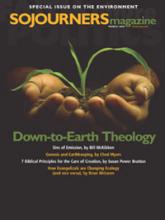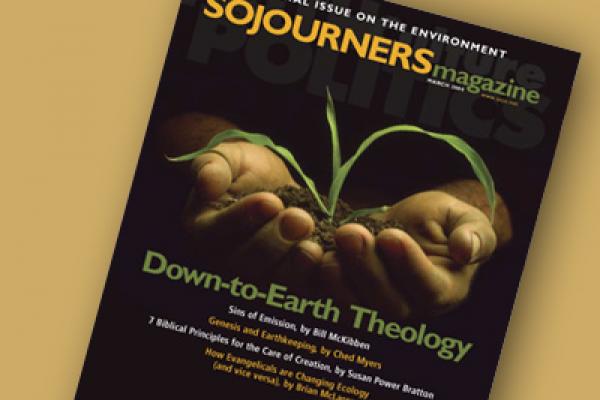RIGHT NOW, I'M thigh-deep in muck. Clad in hip waders, I'm slogging through a spring-fed bog in northern Maryland. I'm surrounded by tussock sedge, alder, jewelweed, skunk cabbage, and swamp rose. And I'm having a great time.
I've done this for a couple of days almost every spring for the last dozen years. I'm out here as a volunteer to do wildlife surveys. In particular, we're looking for the rarest turtle in North America, Glyptemys muhlenbergii, the little four-inch bog turtle. In the 1970s, they were found in more than 400 sites in our little state. In the 1990s, we could only find them in about half those sites. The other sites had been ditched, drained, bulldozed, polluted, invaded by non-native plants, bisected by roads for turtle-smashing cars, depleted by collectors, or otherwise made uninhabitable for these little creatures.
When I meet professional wildlife biologists and other volunteers, they're surprised that an evangelical (or post-evangelical, or "younger evangelical," or whatever) pastor would be out here doing this sort of thing. They're not used to seeing mud-smeared pastors who aren't afraid to grope around in bog muck for turtles or who keep track of chorus frogs and Baltimore checkerspots and Indian paintbrush. I know what they're thinking: Christians, especially ones associated with the term "evangelical," are part of the problem, not part of the solution. They listen to James Dobson and Pat Robertson and James Kennedy, not Wendell Berry and Herman Daly; they focus on the family and the military, not the environment.
Read the Full Article

